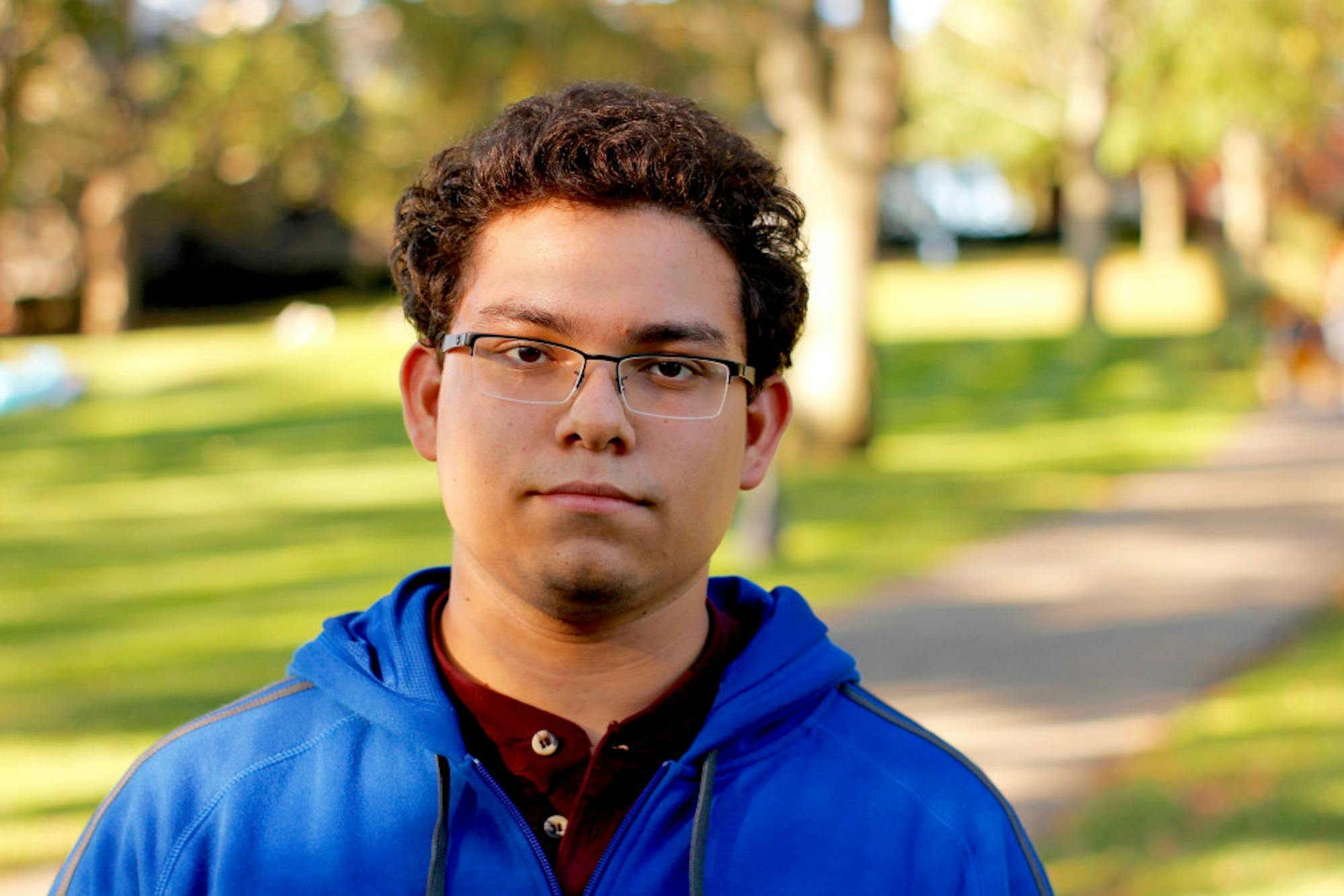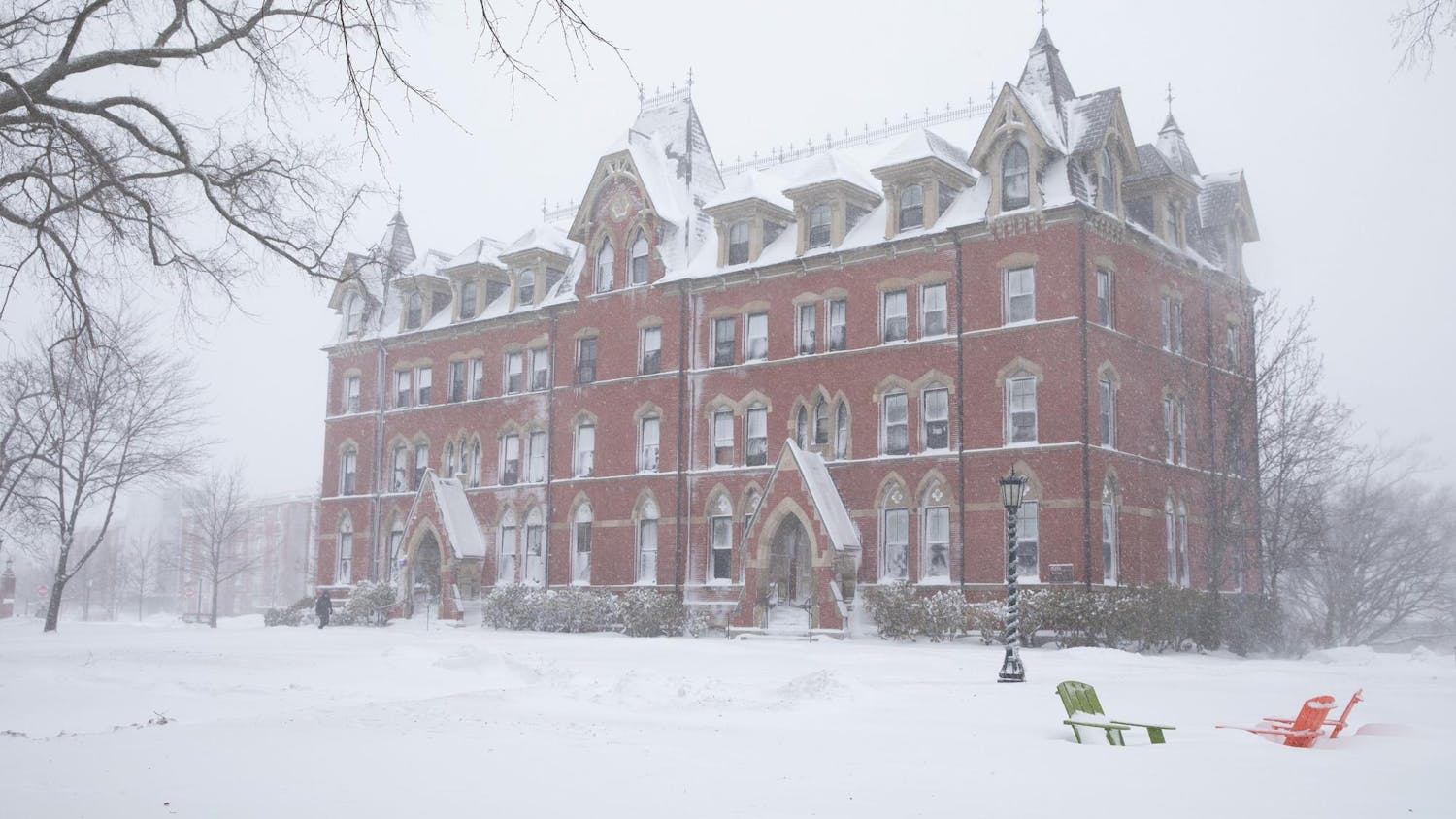Disclaimer: Liam Knox is the executive investigative team editor at the Daily and a founding member of the Left Unity Project. He was not involved with the writing of this article.
A new leftist coalition, the Left Unity Project (LUP) has united on campus and seeks to increase communication, unity and solidarity among left-leaning political groups that already exist on campus, Edwin Jain, one of the organizers of the new coalition, said.
“The point of [LUP] is to unite the varying strands and groups and tendencies on the left,” Jain, a junior, said.
According to Jain, the groups in the coalition share anti-capitalist sentiments. They believe capitalism enforces inequalities and is inherently unfair.
Paul Sevilla, a sophomore and another organizing member, and Jain said that once the group’s identity is solidified, the intention is for it to become an educational and supportive force for the left on campus.
In particular, LUP aims to be a support structure to leftist groups’ activism.
“If there’s a rally or another event, we can help any group that works with us amplify their messaging,” Sevilla said. He noted that the LUP would not take an active role in planning its own actions, instead focusing on supporting other issue-specific groups.
In terms of education, the members of the group hope to bring light to different economic and political theories.
“To sustain any movement, you need to be able to understand things theoretically and practically,” LUP member and senior Elisa Cabral said.
LUP member and junior Nate Krinsky said this educational component is important because many people have not been exposed to leftist economic and political theories.
One of the education initiatives, which the organizing members began working on over the summer, is a zine explaining what it means to be a leftist, which Sevilla said he hoped to see distributed around campus this fall.
As an organization, LUP is built similarly to Tufts Progressive Alliance (TPA), an organization that seeks to further progressive goals on all levels of U.S. politics, according to the mission statement on its Facebook page. Ann-Marie Lee, a sophomore who is a member of both groups, explained that the primary difference between the two is that TPA is more issue-oriented, while LUP is centered on anti-capitalist ideology.
Krinsky, also in both groups, believes that TPA’s work will complement that of LUP. TPA primarily works within the bounds of the political system, while LUP seeks to fight oppressive systems from the outside.
“Both groups work off each other; they help each other achieve their goals,” Krinsky said. “[Both types of action] are important and crucial for change to happen in our society.”
Sevilla and Jain did not foresee the same relationship with the other major multi-issue organization on the left side of the political spectrum, the Tufts Democrats. Though sharing a similar commitment to social issues, this club does not fall inside the LUP’s definition of the left, due to its perceived support of capitalism.
"If the Tufts Democrats want to meet LUP where they are … the members will be happy to work with them,” Krinsky, who has attended Tufts Democrats meetings in the past, said.
Sevilla and Jain agreed that they would be happy to work with Tufts Democrats if their priorities aligned but did not see a close partnership being likely.
Ben Kaminoff, vice president of Tufts Democrats, disagreed with this sentiment.
"The Tufts Democrats are excited and willing to work with anyone who shares our values in resisting the Trump administration and trying to get more Democrats elected around the country," Kaminoff, a senior, told the Daily in an electronic message.
Despite the organization being new, LUP’s members are excited about the possibilities for sparking change, especially on a campus that has been galvanized by the election of Donald Trump last November.
“I think for a long time people have been content with going to a poll booth and having a voice for five seconds, and I think what we are trying to say, and what people are asking now, is how do we have a voice for more than five seconds every four years?” Jain said.
The Left Unity Project seeks to connect leftist students

Sophomore Paul Sevilla, an organizing member of the Left Unity Project, poses for a photo on Oct. 02.





